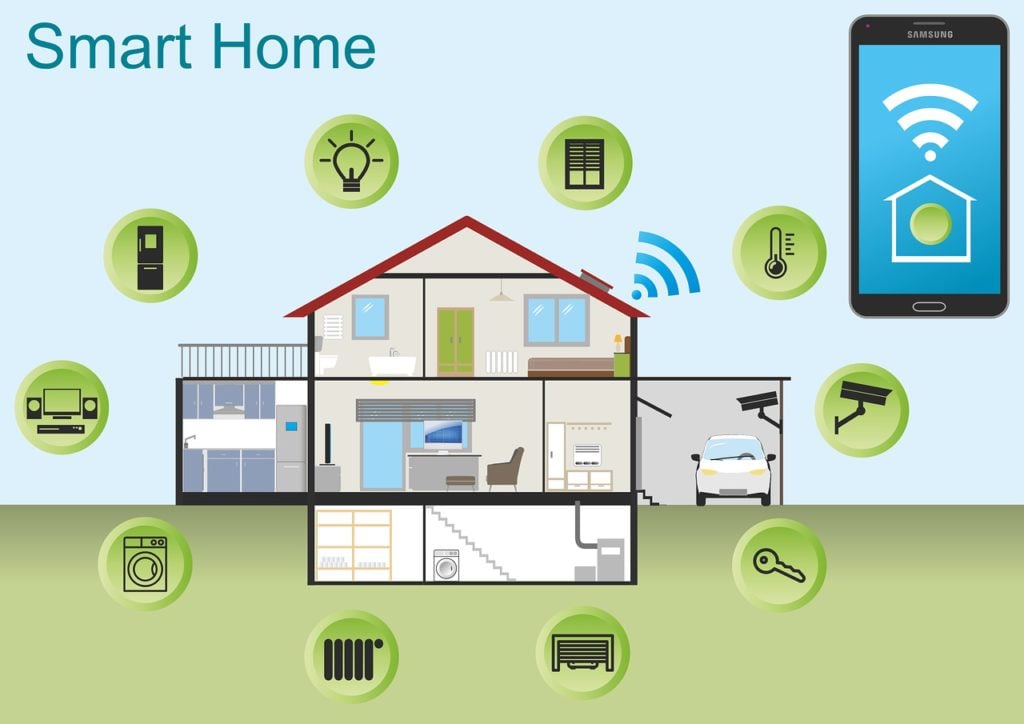A smart home is an ecosystem of devices and smart appliances that work together to make life more convenient.
Since these devices are interconnected through a network, smart homes also bring security risks. This article will explain some of those risks and provide solutions so you can safely enjoy the benefits of a smart home.

Your local network is what connects all of the smart devices together. If it's not properly configured and secured, outside threats can take over the devices and gain insight into your everyday life.
Using default credentials is very common with home networks, and a major source of risk, as hackers may be able to find those credentials online. Instead, set a strong password for your network, and change the default username.
Most Wi-Fi routers use either:
For the best protection, your router should use WPA2, as it's the latest and greatest in router security.
IoT devices also need to be configured and protected with strong passwords. Make sure the passwords are all different and strong. A password manager can help if you find it difficult to remember your passwords.
According to researchers, 80% of smart devices are vulnerable to cyber-attacks. Most vulnerabilities happen because manufacturers fail to provide the appropriate security solutions for the device. Furthermore, these devices run on small operating systems far less capable than larger ones like Windows.
There are many methods hackers use to breach smart devices. Some of the most popular types of attacks are:
To protect against these threats, enable all security features on your devices. A good example is a two-factor authentication. Before someone can use the device, they'll be required to confirm their identity through a security code.
You should also ensure that devices are running on the latest firmware. Most will update automatically, but you should still perform manual checks periodically to confirm that everything is running on the latest version.
Instead of connecting the devices to your main network, you can instead connect them to a guest network. This way, you significantly reduce a hacker's attack surface - even if they breach an IoT device, they can't reach more critical devices like laptops or phones. Consider investing in a reliable security system that provides real-time
monitoring and alerts to any suspicious activities, ensuring your smart home remains secure and your peace of mind intact, as advised by A D Systems.
Last but not least, firewalls are a great way to manage what goes on with your smart devices. A firewall will notify you anytime something abnormal in the network or devices is detected.
One of the biggest benefits of a smart home is the ability to control your devices remotely. This often requires an app on your phone where you can access and control the device. But if the app is not properly secured, hackers can use it as a way to access your home devices.
Be very careful with the remote access apps you download and the permissions you grant them. Verify the manufacturer's authenticity and install all the latest updates for the app. Protect your account on the app with a strong password and two-factor authentication.
Many smart devices are connected to a GPS system that collects location data. The location of your home should be private information, so you should be very careful about enabling any location tracking features on your devices.
Since most smart devices have no need for GPS, it's best to disable it altogether.
Smart surveillance and monitoring systems are some of the most popular smart devices. The danger lies in the possibility that a hacker takes control and does the surveilling. This exposes you and everything your family does inside your own home.
Audio devices like Alexa or Google Assistant are another attack vector. Hackers can take control and listen to everything you say. Then, they’ll wait for you to expose any sensitive information they can use against you.
It's best to turn off any voice devices whenever you aren't home. For smart surveillance cameras, turn off the Wi-Fi so hackers can have no way of gaining control.
Smart homes are undoubtedly the future. However, we’re still in the early stages, and there are many questions regarding security with smart devices. The best thing you can do is to turn off all devices when you're not using them. Additionally, protect your local network so it's as hard to penetrate as possible.